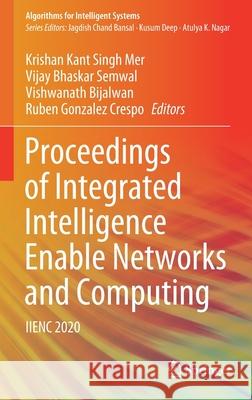Proceedings of Integrated Intelligence Enable Networks and Computing: Iienc 2020 » książka
topmenu
Proceedings of Integrated Intelligence Enable Networks and Computing: Iienc 2020
ISBN-13: 9789813363069 / Angielski / Twarda / 2021 / 1004 str.
Proceedings of Integrated Intelligence Enable Networks and Computing: Iienc 2020
ISBN-13: 9789813363069 / Angielski / Twarda / 2021 / 1004 str.
cena 805,10
(netto: 766,76 VAT: 5%)
Najniższa cena z 30 dni: 771,08
(netto: 766,76 VAT: 5%)
Najniższa cena z 30 dni: 771,08
Termin realizacji zamówienia:
ok. 16-18 dni roboczych.
ok. 16-18 dni roboczych.
Darmowa dostawa!
Kategorie:
Kategorie BISAC:
Wydawca:
Springer
Seria wydawnicza:
Język:
Angielski
ISBN-13:
9789813363069
Rok wydania:
2021
Wydanie:
2021
Numer serii:
000925819
Ilość stron:
1004
Waga:
1.58 kg
Wymiary:
23.39 x 15.6 x 5.23
Oprawa:
Twarda
Wolumenów:
01
Dodatkowe informacje:
Wydanie ilustrowane











